This comprehensive course contains a series of several training sessions that bring together a set of knowledge of what a good Scrum Master should know. Experienced Scrum Masters will introduce you to Scrum and share their experiences in agile transformations. You’ll get to try a number of things hands-on and simulate working in sprints with the help of Lego.
Scrum is quite widespread here, but many people don’t have much experience with Kanban anymore. Still, Kanban is still preferable to Scrum for large teams. This is especially true for teams where you have frequent changes in priorities and frequent changes in assignments break up your sprints. In our course, you’ll learn how to use Kanban practically. You’ll find out that it’s not just a whiteboard, which many people incorrectly associate it with, and how to know when Kanban is right for you. You’ll also learn how to identify sources of waste in your team and how Value Stream Mapping can help you do that.
In the next part you will learn how to write proper user stories assignments for agile development teams. In the course, we will practice writing user stories and provide feedback on them. You’ll learn where the most common mistakes are made when writing so you can help your teams with their writing as well. You’ll learn how to spot a user story that’s too big, and we’ll try splitting it into several smaller ones using splitting patterns.
You can arrange to add content to the course on topics that interest you, for example focusing on how to do retrospectives with your team to make them useful to the team. The Scrum Master course is comprehensive and therefore it is of course possible to split this course into multiple parts.
Included courses
- Optional modules:
- Retrospectives
- Atlassian Jira and Atlassian Confluence
- How analysis changes after moving to agile
- Types of tests in agile teams
- Stakeholders and agility
- First steps with the team and how to gain trust in the team
A lecturer who will guide you through the training
Jan Šrámek is an enterprise agile coach with experience with agile from both corporate companies and start-ups. The approach to agile transformations, as well as to training, is based primarily on practical experience, where he worked for approximately 7 years as an analyst and later as an architect in development teams in the financial sector. He experienced a number of changes that agile and agile transformation brings. It adheres to the principles of Agnostic agile. He prefers to set agility according to the context in your company, instead of a dogmatic approach according to the manual. Honza's strength is diplomacy, but also great patience, which allows him to work with agility even with quite distinctive personalities.In addition to experience in the SW development environment, Honza has also gained a lot of experience in the field of agility in business, human resources, finance, management coaching and more. He strives to enforce the principles and rules he recognizes with other employees and collaborators at Lucid Bay Digital. A number of agile principles are reflected in the functioning of Lucid Bay Digital and so the things we recommend we live by ourselves
Optional training modules
These modules/discussion modules can be added to our trainings by agreement. If you didn't find what you were interested in, don't worry, contact us and we'll come to an agreement.
- Stakeholders and agility
- First steps with an agile team and how to gain the trust of the team
- Retrospectives, what are their parts, what to do if the team seems to have retrospectives too often
- Getting to know Atlassian JIRA and Atlassian Confluence
- How the development team's standard SDLC (SW development life cycle) works
- How the analysis will changes after the transition to agile
- Types of tests in agile teams, changes in testing after the introduction of agile
- How brainstorming works, the possibility to try brainstorming facilitation on a selected topic and feedback
- MVP – Minimum Viable Product
- Agile roadmaps
- OKR (Objectives and Key Results)
Similar and related training
We will teach you the basics of Kanban and how to recognize when Kanban is suitable to use. The course is practical and suitable for beginning scrum masters.
You will learn the necessary theory and then try to write your own User Stories. In addition, we will try to break down too large User Stories into smaller ones.
The first part of the Lean Startup course where we will teach you how to prepare a simple business plan without wasting a large amount of time with its preparation and yet bringing you useful information.
This course is literally packed with practical experience gained from working with agile teams and agile transformations. We will take you through the basics of the Scrum framework from theory to practice. The course is designed for members of agile teams or those interested in understanding agile approaches.
This is a series of several trainings that put together a minimum of what a Scrum Master should be able to do. Since it is a comprehensive course, it is possible to arrange the division of this course into several parts.
On the course you will learn what every good product owner should be able to do. In addition to the methodological basics, you will also learn how to prepare a product vision, a product roadmap and how to break down requirements into a product backlog.
Non-binding request for training or customized training
Are you interested in training? Or would you like to tailor the training to your needs? Write us!


